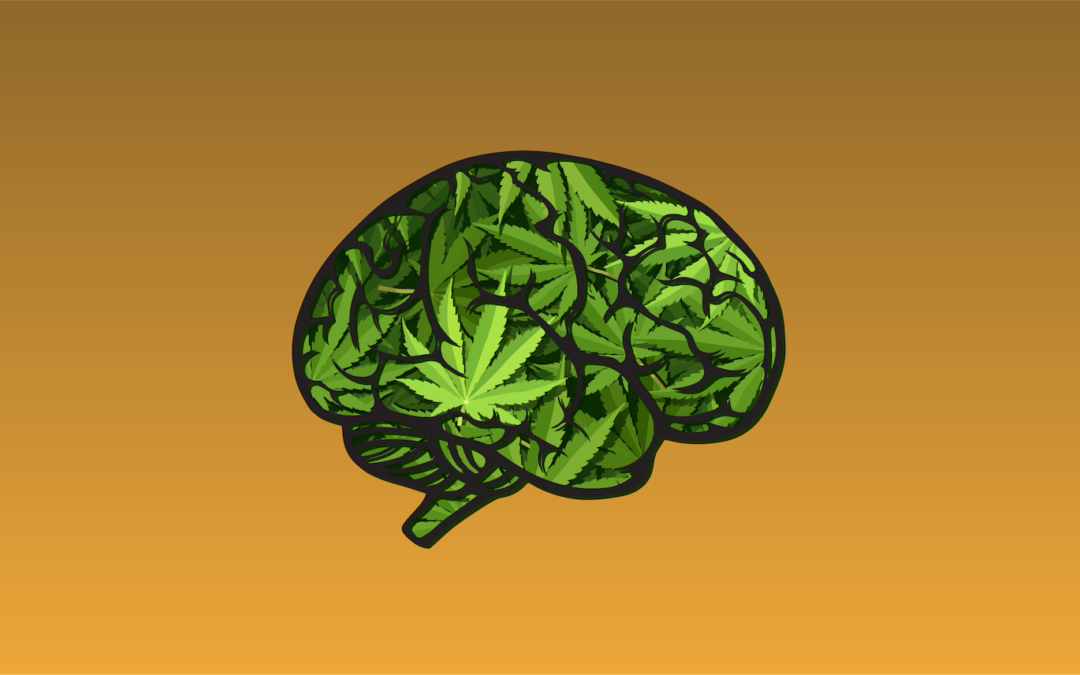It’s no surprise that research has yielded results to suggest that marijuana has a wide range of medicinal benefits. Such potential benefits are synonymous with the health benefits that the cannabinoids inside marijuana (like THC and CBD) provide. Products containing cannabinoids — which are the active ingredients in marijuana — have been prescribed to treat health conditions such as chronic pain, arthritis, and more, as well as alleviate the symptoms of a variety of more serious ailments, such as cancer, HIV/AIDS, and epilepsy, among others.
Mental Health Benefits of Marijuana
More recent studies indicate that it can also effectively boost your mental health. For many, marijuana is used to reduce stress and regulate emotions; while for others, it can be useful for treating mental disorders such as bipolar disorder and Attention Deficit Hyperactive Disorder (ADHD).
In this article, we’ll focus on the eight mental health benefits of marijuana.
1. Fight Anxiety
More and more people are turning to cannabis to help managing anxiety or cope with Generalized Anxiety Disorder (GAD). Scientific research in this area is still sparse; nevertheless, new scientific and anecdotal reports find that the calming experience that marijuana provides its users can temporarily relieve symptoms of anxiety for many people.
2. Ease Depression and Stabilize your Mood
The evaluation of marijuana to treat depression and stabilize one’s mood is still in its early stages. Scientists have begun looking into cannabis as a possible treatment for depression that is caused by chronic stress, and researchers agree on the potential benefits associated with its ability to restore the endocannabinoid function.
Endocannabinoids – a chemical compound produced naturally by your body – engage with the cannabinoid receptor to trigger chemical changes that support brain health and enhance immune function. All in all, the endocannabinoid system has a wide-reaching influence throughout the human body and plays an essential role in motor control, emotions, and behavior. As such, consuming cannabinoids can restore the normal endocannabinoid function to potentially ease depression and stabilize your mood.
3. Treat Insomnia
Medical cannabis can be a very efficient alternative treatment option for patients who suffer greatly from insomnia. Many patients report that, when compared to conventional sleep medications, cannabis works far better since it is not habit-forming, and it leaves them feeling exceptionally well the next day.
4. Promote Relaxation
According to a global poll, the most popular reason that people choose to consume marijuana is because of its ability to alleviate stress and promote relaxation in everyday life. The fact that marijuana is so effective in promoting relaxation boils down to the effect of Tetrahydrocannabinol, or THC, and how it stimulates the psychological response associated with euphoria. Otherwise put, THC – the psychoactive constituent found within marijuana – makes you feel good.
5. Reduce Symptoms of PTSD
Cannabis has shown to be effective in helping people cope with symptoms of post-traumatic stress disorder (PTSD). It is used to assist PTSD cases by preventing the retrieval of the underlying trauma, or effectively preventing traumatic memories and stress, while also helping attain emotional wellbeing. For this reason, it has become a popular treatment for PTSD patients, of which many are combat veterans.
6. Regulate Emotions
It is no secret that marijuana can put a smile on your face; however, research suggests that the positive effects of cannabis go beyond just getting you high. A 2012 study published in the peer-reviewed academic journal European Neuropsychopharmacology indicates that the brain’s endocannabinoid system – which is activated by THC – may play an essential role in processing and regulating emotions, which is “an essential aspect of appropriate social interactions and interpersonal relationships.”
7. Relieve Intrusive and Obsessive Thoughts
Unwanted intrusive thoughts and repetitive anxiety-induced compulsions are directly linked to one’s feelings, which can lead to Obsessive-compulsive Disorder (OCD) and other anxiety-based disorders. The THC present in cannabis has a calming effect, and for many people, it can reduce unwanted, recurring thoughts and obsessions.
8. Improve Cognitive Performance
Preliminary evidence from a new study led by Harvard Medical School Affiliate McLean Hospital’s Staci Gruber, Ph.D., suggests that medical marijuana may improve executive functioning in adults. The study assessed the impact of medical marijuana treatment on executive function and explored whether patients enhanced cognitive functioning. “After three months of medical marijuana treatment, patients actually performed better, in terms of their ability to perform certain cognitive tasks, specifically those mediated by the frontal cortex,” said Gruber in a press statement.
